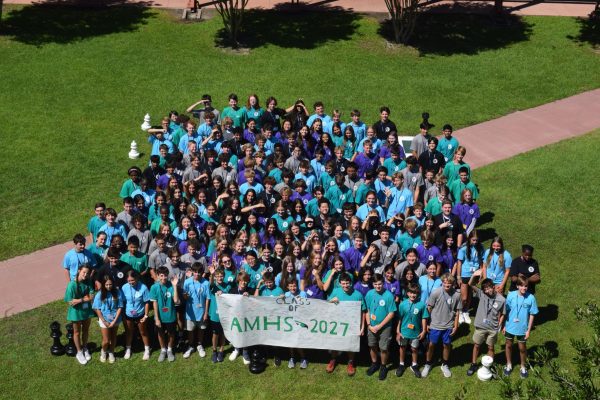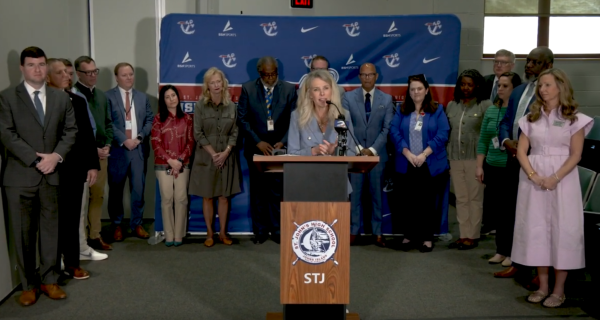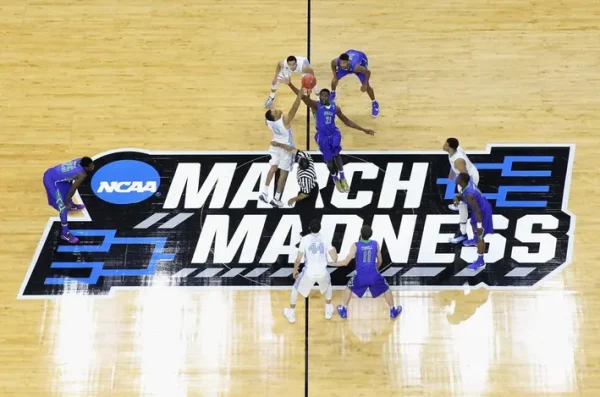How to answer “Who do you want to be?” and other frustrating questions
A thorough guide on how to handle the never ending waterfall of college themed inquiries.
Nearing college during the most challenging years of their academic career, upperclassmen are constantly cascaded with intruding questions about their future. College plans, desired fields of study, occupation, and other factors will be interrogated at any large family event, introduction to an adult, or awkward conversation with a friend’s parents. In this article, I present a guide on how to escape the endless grilling done by every adult you’ll speak to for the next two years.
What are you majoring in?
There is no way out of this question. The closer you inch towards graduation, the more often you will hear it. When answering this query, it is important to take into account the context of the conversation. Typically, there are two situations:
1. You run into your older brother’s acquaintance (or another irrelevant person) at a local Harris Teeter.
In this scenario, I recommend you toss in a simple response:
“Pre-med.”
You’ll usually receive an “Oh nice” or *Insert personal anecdote that has little to do with your major* in response, and after about 15 more seconds of awkward conversation you will each go your separate ways. It is important to note that it is very easy to TMI in this situation and you should therefore answer with one, simple word.
2. All eyes turn to you when your neighbor addresses you during a communal Friday night dinner.
In the second scenario, feel free to discuss your interests a bit more, as the inquirer likely looks to strike up a meaningful conversation.
“I’m still deciding between Mathematics and English as my major, but I’ll definitely minor in the one I don’t choose. I think it depends on the school I end up going to. I am very set on the Pre-med track, though.”
This sets up a good base for your conversation partner to ask follow-up questions, or even offer some personal insight on what major they think you should choose.
However, it is likely that you will not have a major chosen until about November of your Senior year. Please remember that “I don’t know yet” is the worst possible answer to this question, hence I recommend some very vague responses as a satisfactory alternative.
1. “Definitely STEM.”
2. “Social sciences, maybe history or economics.”
3. “I’m leaning towards ___ (broad field of study such as engineering, law, or business).”
Who do you want to be?
“Probably an orthopedic hand and wrist surgeon, or maybe peripheral nerve neurosurgeon, but I’m also open to pursuing a Ph.D. route and focusing on oncology research.”
Nope! Wrong. Adults want a clear, concise answer that displays a career path that they are both familiar with and view as feasible. Keyword feasible— there’s probably been one person that has taken my neurosurgeon aspirations seriously. For this question, I recommend coming up with a one to three-word response that encapsulates both your niche interests and a realistic profession.
“I’m going into medicine, probably surgery.”
Now it’s time for the follow-up question, posed by family friends thirsty for some small talk, or people who are genuinely interested in what you want to do:
Why do you want to do that?
Have two layers of your story locked and loaded. Rehearse it in your bathroom mirror if you have to, but make sure that your execution is as flawless as the TMP you presented last week.
“I had a severe nerve injury in my right arm that left it paralyzed for 10 months, and going through the whole process got me really interested in medicine.”
Once again, the second layer will be required if the adult really wants to talk to you (or just cannot pick up on social cues). This is a nice opportunity to discuss your current explorations of this field, such as internships or research you actively participate in.
“I shadowed a lot of different fields after my surgery and was most interested the ER and OR. Right now I volunteer in the burn and trauma unit at MUSC and it’s really solidified my decision to go into medicine.”
In conclusion, be ready for this question to spiral into a long, strewn-out discussion about your field of interest.
Do you know where you’re going to college yet? Where do you want to go?
No, we don’t know where we are going to college yet. Underclassman, prepare yourselves: this is a frontrunner for “most frequently asked question.” If you get into your ED school— great! You’ve got an answer to spew out from December to whenever you leave for college. However, if this question arises during your junior year, or if your Ivy League ED was shockingly rejected, it is wise to have an answer prepared that doesn’t raise expectations by name-dropping a school but still gets your point across. If you have a dream school, that is a great answer to give as well. I recommend following these structures:
1. Give a general location.
“I’d love to go to the Northeast.”
“I really hope to go to a UC!”
“I’m probably staying in-state.”
“Somewhere in North Carolina?”
2. State an anticipated school, based on your qualifications or even legacy status.
“I’ve applied to Duke…”
“UGA and UFlorida are my top two!”
“Vandy would be nice.”
Make sure to give a clear-cut school name instead of saying what you’re looking for in a university, because frankly nobody really cares. It is also important to stay away from naming lesser-known schools, as they usually incite a plethora of questions.
Why aren’t you applying to ___?
Probably because I don’t want to? There will always be that one person who thinks that their university is miles ahead of anything else, and will find a way to refute your response with a story about this random school. Nevertheless, a quick “it’s just not what I’m looking for” is always worth a try. If not, try a combination of these:
1. “I just don’t really like the weather up/down there.”
2. “The size of the school is much too big/small for my preference.”
3. “It’s way too far from home.”
These responses are typically foolproof, however the enthusiastic graduate of the glorious University of Blank may continue to persist. In this case, just surrender and toss in this quick and easy response:
“You know what, you’ve convinced me. I’ll look into it.”
Why would you want to live in ___?
While I am usually urged to aggressively roll my eyes, a simple, generic retort does the trick:
1. “I want to broaden my cultural experiences and I believe that ___ is dramatically different from Charleston.”
If you’re going to USC, that answer won’t work. Instead, try the following:
2. “I’m just focusing on my academics for undergraduate, but I would definitely like to live somewhere else after I graduate.”
For extra points, replace “somewhere else” with the hometown of the person you are speaking with.
Don’t get me wrong, I really enjoy having these conversations with some people. But just like every other upperclassman, my brain has rotted from the amount of times I have had to repeat my scripted responses. Despite this form of pressure from every adult in your life, remember to have fun with the college application journey, as it is a huge milestone in your life.
Best of luck handling adults who say “It’s so much harder now” after reciting a story about when they or their kids applied to college, or those who find a way to awkwardly congratulate you three times in the span of a minute about your college decision. I’ve got nothing for that.
All in all, I hope that this article will serve as a useful tool to handle every college conversation you will have until the day you graduate, pestering every minute of your waking hours more gruesomely than the mosquitos plaguing your spring-sport practices.













